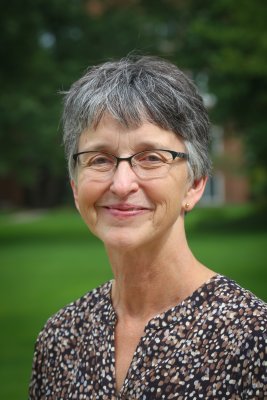Shetler’s lifelong research enters new stage: Mara Cultural Heritage Digital Library website goes live

Written by Grace Hitt ’23
Jan Bender Shetler, director of global engagement and professor of history at Goshen College, has spent the past 40 years of her life conducting and analyzing oral history research on cultural memory in Tanzania. This summer, her research entered a new phase with the official public launch of the Mara Cultural Heritage Digital Library (MCHDL).
The MCHDL’s new site has been described by Albertus K. Onyiego, a history professor at the University of Dar es Salaam, as “one of the most useful research repositories for [the] Mara Region ” of Tanzania.
In 2020, Shetler received a three-year National Endowment for the Humanities Collections and Reference Resources Implementation Grant. The grant has allowed Shetler and her team to partner with the Matrix Center for Digital Humanities and Social Sciences at Michigan State University to create the site’s platform. The MCHDL will also be housed in Matrix’s Africa Online Digital Library.
The MCDHL represents the culmination of two decades of work digitizing and transcribing Shetler’s research, which began in the early 2000s. The database collects Shetler’s more than 300 interviews into one database, including video, audio, transcripts, fieldnotes and photographs. The MCHDL also features other types of resources such as music, maps, documents and dictionaries. Currently, a team of three Goshen College students work on digitization and metadata for the database.
Shetler returned to Tanzania in July to introduce the website and meet with Tanzanian collaborators. She reconnected with previous collaborators and forged new connections with individuals excited about the possibilities of the MCHDL for preserving their stories. Many of Shetler’s interviewees, particularly those from her 1995-1996 dissertation research, have passed on, and family members in the Mara Region savored the opportunity to hear their loved ones’ voices again.
The trip opened doors to exciting new possibilities for partnerships, such as incorporating MCHDL materials in the East Africa Library and the JK Nyerere Library as well as other local historical associations and museums. Additionally, Tanzania’s Ministry of Education in the Mara Region expressed hope that Shetler could run a series of workshops with high school teachers about how MCHDL could be used in the classroom. Historians, anthropologists and linguists from a number of universities in the U.S., Europe and Tanzania have expressed interest in using the collection for research and in class assignments.
So far, 446 people and groups have used the MCHDL across four continents. Shetler expects these numbers will expand as the team continues to work on outreach and local coordinators promote the database’s use.
The Mara Cultural Heritage Digital Library team continues to add content to the website. Student assistants are now in the process of uploading Shetler’s 2010 interviews about women’s histories as well as working on the Siso Collection. Zedekia Oloo Siso, a popular historian in the Mara Region, recorded oral interviews and other materials in the 1970s and 1980s that will be included in the MCHDL.
Shetler describes the events of the summer as “an absolute joy” to be able to see the enthusiastic response of collaborators in the Mara Region as well as Tanzania academics. It makes it all worthwhile to have the conversation about those interviews lodged back in Tanzania in the communities where they originated.




